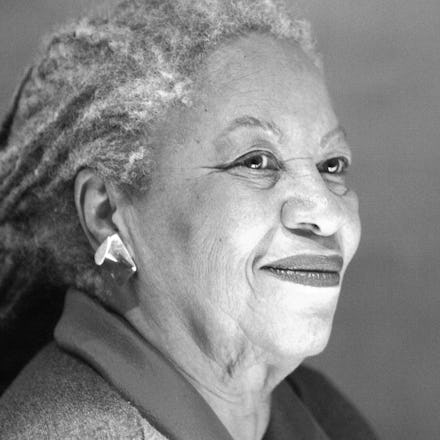Toni Morrison's ability to capture black American life was incomparable

This article is a part of the Black Monuments Project, which imagines a world that celebrates Black heroes in 54 U.S. states and territories.
How often is perhaps the greatest novelist in modern American history also among its most insightful documentarians of the color line and its wages? The answer, to my knowledge, is once, so far: Toni Morrison, the 86-year-old Nobel Prize winner and author of such American classics as Beloved, Jazz, The Bluest Eye, Sula and Paradise.
Since her first novels were published in the 1970s, the Lorain, Ohio, native has provoked her readers with as clear-eyed a view of black womanhood and its requisite struggles and triumphs as anyone writing across U.S. history. Her insights into race in America remain among our most frequently quoted even years after the fact.
“The function, the very serious function of racism is distraction,” Morrison said during a talk at Portland State University in 1975. “It keeps you from doing your work. It keeps you explaining, over and over again, your reason for being. Somebody says you have no language and you spend 20 years proving that you do. Somebody says your head isn’t shaped properly so you have scientists working on the fact that it is. Somebody says you have no art, so you dredge that up. Somebody says you have no kingdoms, so you dredge that up. None of this is necessary. There will always be one more thing.”
To distill such an ugly and complex topic with such clarity and eloquence is Morrison’s hallmark. It defines her prose as well, which stands among the most lyrically stunning yet accessibly written work about black American life. Morrison’s books speak for themselves as art, but it’s her ability to grapple so brilliantly with a topic that so many barely understand, let alone unpack with a real nuance or clarity, that sets her so far apart from her contemporaries. For our money, she is the closest thing to peerless that we have in American letters.